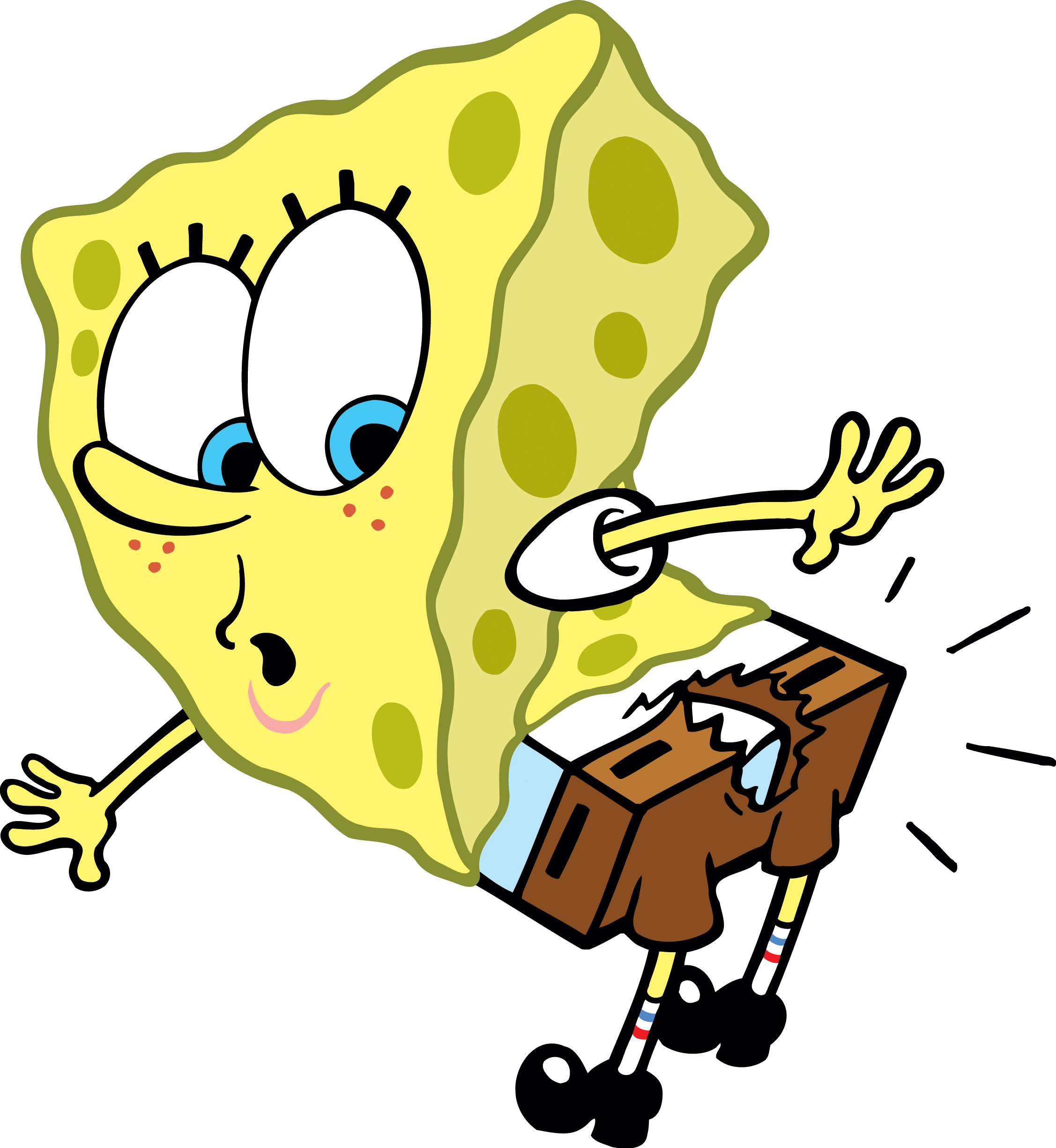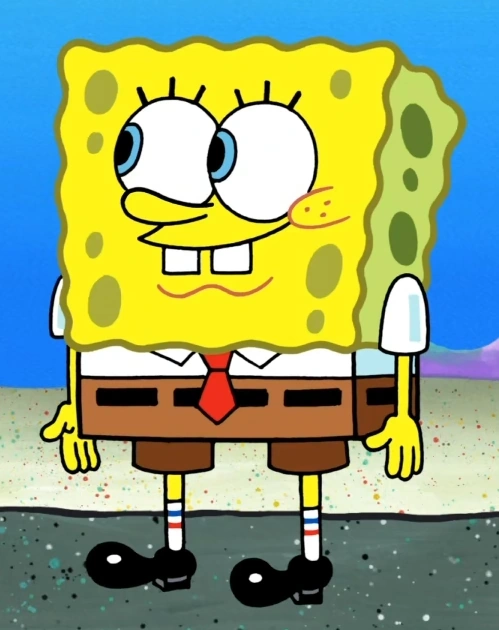Bikini Bottom To Tehran: Unpacking The Unofficial SpongeBob In Iran Phenomenon
The world of animation often transcends geographical and cultural boundaries, bringing beloved characters to audiences far and wide. Yet, few instances are as uniquely fascinating and complex as the journey of SpongeBob SquarePants to Iran. This isn't just about a simple dubbing; it's a deep dive into an unauthorized, fan-driven, and culturally significant phenomenon that has captivated Iranian audiences for years, creating a distinct version of the porous protagonist known as "Bab Esfanji." From bootleg films to multiple local adaptations, the story of SpongeBob in Iran reveals the power of popular culture to find its way into unexpected corners, often through unofficial channels, shaping a narrative that is both familiar and profoundly local.
This article explores the intriguing landscape of SpongeBob's presence in Iran, from the multitude of Persian dubs to the creation of full-length unofficial films like "SpongeBob in Tehran." We will delve into the creative forces behind these adaptations, their unique production methods, and the cultural impact they have had, even touching upon how this seemingly innocent cartoon character has entered broader societal discourse.
Table of Contents
- The Curious Case of SpongeBob in Iran
- "SpongeBob in Tehran": An Unauthorized Cinematic Journey
- Animation Styles and Production Quirks
- Distribution and Fan Engagement
- The Cultural Resonance of SpongeBob in Iran
- Navigating Copyright and Creativity
- The Broader Landscape of International Adaptations
- Beyond Tehran: The "Bobby and Bobo" Connection
The Curious Case of SpongeBob in Iran
The journey of SpongeBob SquarePants into the hearts and homes of Iranian audiences is far from straightforward. Unlike many international adaptations that follow strict licensing agreements, the presence of SpongeBob in Iran is largely defined by a vibrant, often unauthorized, ecosystem of dubs and original content. This unique situation has given rise to a rich tapestry of interpretations of the beloved Nickelodeon character.
- Islamic Clerics Criticized The Shah Of Iran Because They
- Will Us Attack Iran
- Iran Wikipedija
- Man From Iran
- Persepolis City Iran
A World of Persian Dubs: Bab Esfanji
The very title "Bab Esfanji" (باب اسفنجی) itself signifies the localized identity of SpongeBob in Iran. It's not merely one dub, but a collective term for numerous Persian adaptations of SpongeBob SquarePants. In fact, the "Data Kalimat" reveals that there have been many different dubs, originating from as many as seven different channels. Each of these dubs possesses its own unique characteristics, from voice acting nuances to translation choices, making the Iranian SpongeBob experience incredibly diverse.
While the majority of these dubs have been unlicensed, a few notable exceptions stand out. The IRIB TV2 dub and the MBC Persia dub are specifically mentioned as being legal, indicating that some official channels did manage to secure rights. However, the sheer volume of unlicensed content suggests a strong grassroots demand that official channels couldn't fully meet or control. This proliferation of dubs has even led to some episodes being dubbed twice, a testament to the uncoordinated yet prolific nature of these adaptations.
The Unofficial Realm: Bootlegs and Beyond
Beyond the television airings, the presence of SpongeBob in Iran extends significantly into the realm of home video. The "Data Kalimat" indicates that the dubs were initially produced by "Persians of Mashhad" and first released on DVD by Parsian Home Video. Following the closure of Parsian Home Video, the distribution shifted to TDH Home Entertainment. This distribution model highlights a robust, if unofficial, market for animated content.
Dozens of DVDs have been released over time, each containing multiple random or themed episodes. This format allowed for widespread access to SpongeBob content, regardless of official broadcasting schedules. This DIY approach to content distribution is a hallmark of how popular culture navigates stricter media environments, finding ways to reach its audience through alternative means. It underscores the ingenuity and resourcefulness of local creators and distributors in meeting consumer demand for international entertainment.
"SpongeBob in Tehran": An Unauthorized Cinematic Journey
Perhaps the most intriguing manifestation of SpongeBob in Iran is the creation of full-length, unauthorized films. "SpongeBob in Tehran" stands as a prime example of this unique phenomenon. Released in 2017, this Iranian bootleg film is based on the popular animated series, but it is entirely an original creation, albeit one that leverages the established characters.
The film is described as an "unofficial film created for Persian audiences," and it was broadcast on December 18, 2017. Its existence highlights a level of creative ambition that goes beyond mere dubbing, venturing into original storytelling with beloved foreign characters. This particular film, and likely others in what is referred to as a "trilogy," represents a significant step in localized fan content creation.
The Creative Minds Behind the Unofficial Film
The "Data Kalimat" provides specific names associated with the creation of "SpongeBob in Tehran," offering a rare glimpse into the individuals behind these unauthorized projects. The film was directed by Hamid Esmaeli, Majid Yazdan Parast, and Hamed Rajabi. While not much is widely known about these filmmakers outside of this context, their collaborative effort brought this unique cinematic endeavor to life for Iranian audiences.
Furthermore, the film is explicitly stated to have been "created by the same team that produced the Persian dub known as bāb asfaṉjī." This connection suggests a dedicated group of animators and voice actors who were already deeply immersed in adapting SpongeBob for the Iranian market. Their familiarity with the characters and the existing fan base likely fueled their decision to embark on a more ambitious, original film project.
A Plot as Unique as Its Production
The storyline of "SpongeBob in Tehran" is as unconventional as its production. The "Data Kalimat" offers tantalizing snippets of the plot, indicating that SpongeBob and his friend Patrick embark on a journey to Iran for the first time. Their initial attention is caught by hamburgers, a humorous nod to their usual culinary obsessions, until they notice something amiss. This initial setup immediately establishes a narrative that places the familiar characters in an entirely new and unexpected cultural context.
A key plot point involves SpongeBob and Patrick receiving a call from an old friend, a goldfish named Golden Mustache, who informs them about a trouble he is facing. This premise suggests an adventure-driven narrative, likely involving the duo helping their friend out of a predicament in their new Iranian setting. The simple summary, "SpongeBob and friend take a trip to Iran. That's it," encapsulates the directness of the concept, emphasizing the novelty of the location itself as a central element of the film's appeal.
Animation Styles and Production Quirks
The production quality and animation style of "SpongeBob in Tehran" are particularly noteworthy, reflecting the challenges and creative solutions employed in an unauthorized production. The "Data Kalimat" specifies that "the majority of the film is animated using original 3D CGI." This indicates a significant undertaking, as creating original 3D animation is a complex and resource-intensive process, especially for an unofficial project.
However, the film also incorporates elements that highlight its bootleg nature: "some scenes use stolen 2D animation from the show or poorly made custom images." This blend of original 3D animation with repurposed or low-quality 2D elements creates a distinct visual style that is characteristic of many fan-made or unauthorized adaptations. It's a pragmatic approach to filmmaking, where creators utilize available resources and ingenuity to bring their vision to life, even if it means a patchwork aesthetic. This mix contributes to the film's unique charm and its place within the broader narrative of SpongeBob in Iran.
Distribution and Fan Engagement
The distribution of "SpongeBob in Tehran" and other related Iranian SpongeBob content primarily occurred through informal channels, such as DVD sales and, more recently, online platforms. The mention of "SpongeBob in Tehran full movie" with an item size of 93.2MB suggests that the film has been widely shared digitally, likely through file-sharing sites or streaming platforms. The "Data Kalimat" also references a "playlist of the SpongeBob in Tehran/Iran trilogy as well as another Persian SpongeBob film that seems to be related (same voice actors) and a Persi," indicating a series of interconnected films circulating among fans.
The fan engagement around these unofficial productions is significant. While direct reviews might not be available for some items, the very existence of uploaded content, playlists, and user comments (like the one from an uploader whose channel was terminated but is now back) points to a passionate community. The fact that these films have English subtitles further broadens their reach, allowing non-Persian speakers to experience this unique cultural phenomenon. This organic spread and dedicated fan base are crucial to understanding the longevity and impact of SpongeBob in Iran, demonstrating how content can thrive even without official backing.
The Cultural Resonance of SpongeBob in Iran
The enduring popularity of SpongeBob SquarePants in Iran, even through unofficial channels, speaks volumes about its universal appeal. However, its presence has occasionally transcended mere entertainment, entering into broader cultural and even political discourse. One striking example provided in the "Data Kalimat" is a statement from a prominent cleric:
"Iran can't hit back over Soleimani's killing because America has only fictional heroes like SpongeBob SquarePants, a prominent cleric said."
This quote, while controversial and politically charged, highlights the unexpected cultural weight that a seemingly innocuous cartoon character can carry. It demonstrates how popular cultural figures, even those from foreign media, can become reference points in local political rhetoric, whether used dismissively or as symbols. This particular statement underscores the deep penetration of SpongeBob into the Iranian cultural consciousness, to the extent that it can be invoked in serious national discussions.
Beyond such high-profile instances, the widespread adoption of "Bab Esfanji" suggests that SpongeBob resonates deeply with Iranian children and families. The character's optimism, innocence, and comedic antics likely provide a form of escapism and entertainment that transcends cultural differences, making SpongeBob a beloved figure despite the unofficial nature of many of his appearances.
Navigating Copyright and Creativity
The story of SpongeBob in Iran is a fascinating case study in international copyright and creative adaptation. The fact that the majority of Persian dubs are "unlicensed" and that films like "SpongeBob in Tehran" are "bootleg" productions raises significant questions about intellectual property rights. In many countries, such unauthorized adaptations would face immediate legal challenges.
However, the global landscape of copyright enforcement is complex, especially when it crosses national borders and involves differing legal frameworks. In environments where international copyright laws are not as strictly enforced or where obtaining official licenses is challenging due to political or economic reasons, unauthorized adaptations often flourish. This allows local creators to tap into popular global franchises and produce content that resonates with their audience, even if it operates outside conventional legal boundaries. The existence of a "SpongeBob in Iran category page" further solidifies the unofficial but organized nature of this content, showcasing how a community can form around and categorize such adaptations.
The Broader Landscape of International Adaptations
The phenomenon of SpongeBob in Iran is not entirely unique in the world of international animation. Many popular Western cartoons have been adapted, dubbed, and sometimes even unofficially re-imagined in various countries, particularly where access to official content is limited or where local creators seek to infuse foreign characters with local flavor. These adaptations often reflect the cultural values, humor, and societal norms of the adapting country, creating a hybrid form of entertainment.
SpongeBob SquarePants, as part of "International SpongeBob SquarePants," has seen numerous official and unofficial dubs globally. However, the Iranian case stands out due to the sheer volume of unauthorized content, including original feature films. This highlights a dynamic interplay between global media consumption and local creative production, where fan enthusiasm and entrepreneurial spirit lead to unique cultural products that may not always conform to established industry practices.
Beyond Tehran: The "Bobby and Bobo" Connection
The "Data Kalimat" also introduces another intriguing layer to the Iranian SpongeBob universe: "Bobby and Bobo in Iran." It's noted that "people don't realize this but Bobby and Bobo in Iran actually started out as SpongeBob in Iran (not related to the CGI SpongeBob)." This suggests a lineage of adaptations, where earlier, perhaps simpler, versions featuring SpongeBob characters eventually evolved into distinct, albeit related, projects like "Bobby and Bobo."
This evolution from direct SpongeBob adaptations to more loosely related projects, potentially to circumvent copyright issues or simply to explore new creative avenues, is a common trajectory in the world of fan-made content. The mention of "Bobby and Bobo" having English subtitles, much like some of the "SpongeBob in Tehran" content, further indicates an awareness among creators of a broader, international audience interested in these unique Iranian interpretations. It showcases the continuous innovation and adaptation within this vibrant, unofficial creative space.
Conclusion
The story of SpongeBob in Iran is a captivating narrative of cultural adaptation, creative ingenuity, and the enduring power of popular media. From the multitude of "Bab Esfanji" dubs to the ambitious, unauthorized "SpongeBob in Tehran" film, the porous protagonist has found a unique and deeply localized home in Iran. This phenomenon, driven by dedicated local teams and a passionate audience, showcases how beloved characters can transcend their original contexts, taking on new forms and meanings in different cultural landscapes, even when operating outside conventional licensing frameworks.
It's a testament to the universal appeal of SpongeBob's optimistic spirit and the resourcefulness of creators in making content accessible to their audiences. What began as simple dubs evolved into original cinematic ventures, reflecting a vibrant, unofficial animation industry. We encourage you to explore the fascinating world of "Bab Esfanji" further and share your thoughts in the comments below. Have you encountered other unique international adaptations of popular cartoons? Let us know!
- Iran Porn Hd
- War On Iran
- Islamic Clerics Criticized The Shah Of Iran Because They
- Kharg Island Iran
- Iran Nishapur

SpongeBob PNG

Spongebob - Spongebob Squarepants Photo (33210742) - Fanpop

SpongeBob SquarePants | Animation Wiki | Fandom